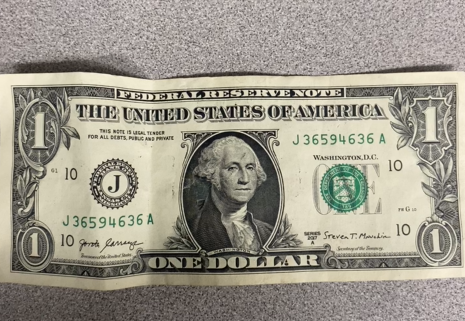Teenagers and Tattoos
Savannah Muzenberger
March 2, 2015
“Some people see it as a self-expressive art form while others see it as a rebellious immature act that will one day be regretted,” states an anonymous writer in Bellingham, RI. ‘No’ is the usual answer when a young teenager asks their parents for permission to have a tattoo. The obvious response to that question is “you’re too young,” and “tattoos are indecent.” Are they really?
Tattoos have different meanings and reasons behind them. Adults are able to get meaningful tattoos, so why not teenagers? It is often thought that teenagers should not get tattoos because they do not know what they are doing to their bodies. However, if the tattoo is motivational or inspirational to the teen, why should they be told no? This articles does not at all support meaningless tattoos that are granted for no apparent reason. In order to have a tattoo, the idea that it was gotten for a purposeful reason is what this article is supporting. With that being said, the stereotype that tattoos are for wild and rebellious people is entirely incorrect.
The history of tattoos does in fact come from a background of what most parents would not want for their teenagers. Tattoos used to only be seen on those who joined gangs, the military, or a circus side show. The emphasis on the words use to is an argument to prove that times have changed. Supporting the fact that those who were involved in those lifestyles are no longer the only ones with tattoos as of today. Tattoos can be seen all over the world on all different types of people.
Savannah Muezenberger is a junior at BCCHS that has some of her own tattoos, “Just because a person has tattoos doesn’t mean they can’t be just as successful as a person without them,” stated the teen. Muezenberger agrees with the statement that tattoos do not define a person’s potential for a successful future. Tattoos cannot define if a teenager is or is not a hard worker and is dedicated to school. Tattoos cannot physically make someone a failure. How can a non-tangible object put teenagers in the category of rebelliousness?
Another common argument against teens getting tattoos is that the decision might one day be regretted. This regret can come either from an adult or teen. Despite this concern, teens still feel that a tattoo is a form of art that expresses their individuality and uniqueness. Some tattoos also have a deeper meaning behind them. When a tattoo stands for something close to a person’s heart, it is more than just an ink stain on their skin. It is impossible to understand why a teen would get a tattoo and what it means to them without actually asking. For example, Muezeneberger has a tattoo on her left shoulder that quotes a statement that is very useful and motivational to her. The quote reads “I am free,” and is surrounded by flying birds. This tattoo represents a time in her life where she needed guidance and security. She got this tattoo at the age of fourteen in order to remind her that she is free to be whoever she wants to be. She is finally comfortable in her own skin and is reminded of that every time she looks at her tattoo. It also reminds her to keep pushing forward and to never give up.
To represent the counterargument, a few reasons why a teen should not get tattoos include the following: tattoos are often affiliated with gangs, the stretching of skin once a teen grows older, and the costs. Yes, it is very clear that many gang members have tattoos to represent their gang but not everyone who has a tattoo is affiliated in a gang! Also, the stretching of skin as one grows older may cause the tattoo to become warped and unrecognizable and this is just a chance that one must take despite what age they are. Skin can be altered as one loses or gains weight, as age is not really a factor when it comes to the conversion of a tattoo. Lastly, the cost of a tattoo is pricey and therefore tattoos should only be administered to those who can afford it. Again, this is something that should be a concern to someone of any age who is interested in getting tattoos, not just teens.
Freedom of expression is what tattoos provide and that freedom should not be striped from those who are under the age of eighteen. For that is the time where teens are just becoming comfortable with themselves and liking who they are. Tattoos have the power to provide the security and confidence that one needs to get through their hardships. This only helps and provides great reasoning why responsible teens should be able to get tattoos. Of course not all teens are responsible enough to handle the idea of a needle injecting permanent ink on their skin. Some teens do not know what they are doing and should not get a tattoo but that should not be held against those teens who are responsible and that can handle the decision of getting something for the rest of their life. Not all teens are juvenile delinquents who party all night and have no other worries. Those teens who do a lot of work, have good grades, or need something to get them through the day are the types of teens who should be allowed to get tattoos that have sentimental value.
.









